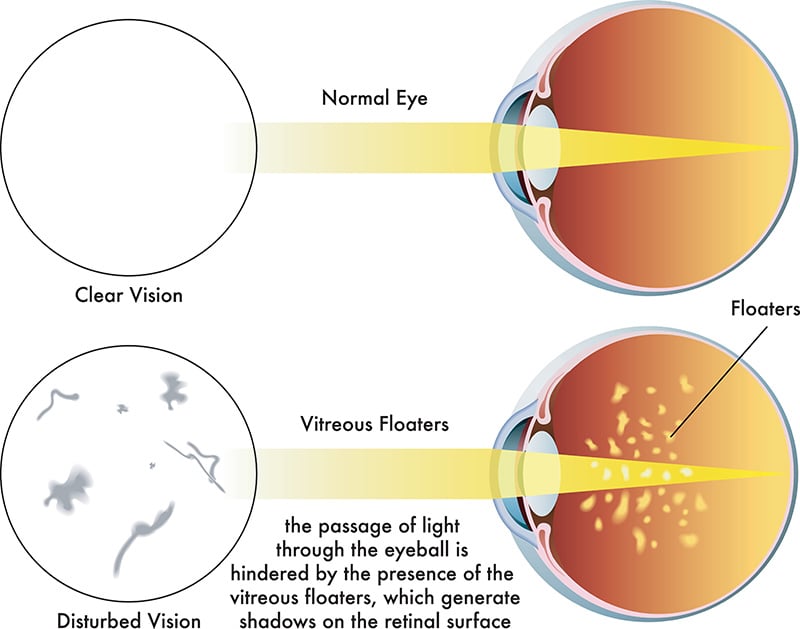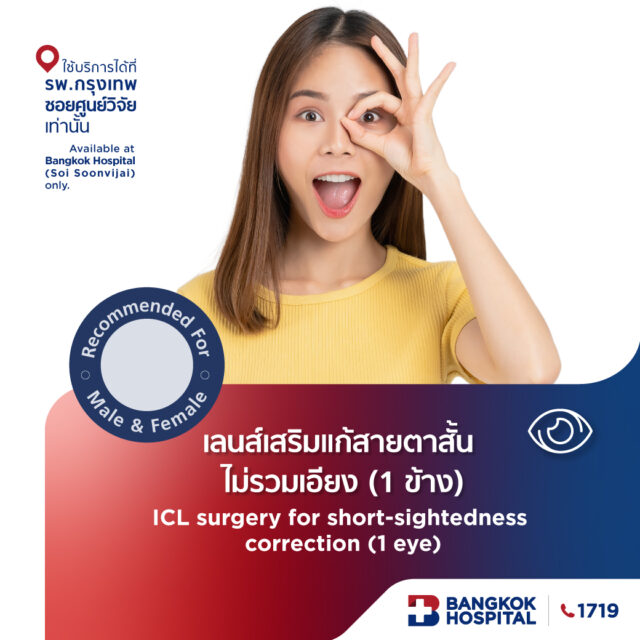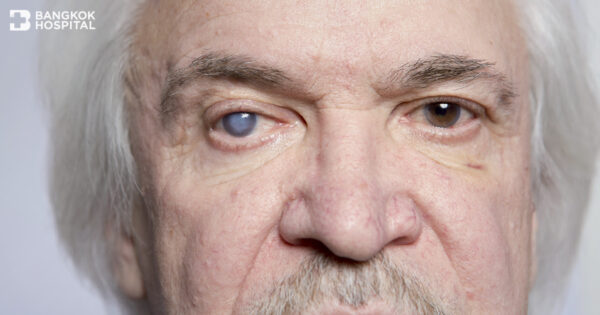If you experience seeing dark specks, floaters especially while looking into the sky or very light background and they suddenly disappear once you concentrate on them, or flashes of light in the eyes which are most noticeable in dark surroundings, these might potentially indicate the condition called vitreous degeneration. It is an eye problem commonly affecting many people as they age, although younger people can also have vitreous degeneration.
Get to know vitreous degeneration
Vitreous degeneration is one of the most common eye problems found in people aged over 50. The vitreous humor or vitreous gel is a transparent, colorless, gel-like substance that fills the space between the lens and the retina, a light-sensitive area at the back of the eye. It helps maintain the shape of the eye and nourish the eye. The vitreous humor is composed of 99% water and 1% structural proteins, fibers such as collagen, hyaluronic acid and electrolytes.
During adulthood, the vitreous humor that fills the eye becomes liquid and condenses as the fibers shrink and cause condensed vitreous material. Vitreous degeneration results in dark specks, floaters seen as small moving dots or wispy dark spots or lines, or flashing lights. The final stage of vitreous degeneration develops when the vitreous completely separates from the retina, known as a posterior vitreous detachment or PVD. However, if the forces of separation are considerably strong or if there is an abnormal adhesion between the vitreous gel and the retina, it can cause retinal tear which is typically found in 10-20% of patients with vitreous degeneration. Patients with retinal tear often experience the sudden onset of flashing lights that look like lightning inside the affected eye which are most noticeable in dark surroundings. If it is left untreated, retinal detachment is a potentially serious complication that may result in permanent loss of vision.
Other complication that can develop if vitreous degeneration progresses is vitreous hemorrhage (blood in the vitreous cavity), which can happen when a blood vessel tears away with posterior vitreous detachment. A vitreous hemorrhage brings about flashes and floaters in the field of vision. Some vision loss may occur due to the presence of blood in the visual field.
Causes of vitreous degeneration
Vitreous degeneration can be caused by several factors, including:
- Advancing age as the most common cause
- Intermediate and posterior uveitis which are the inflammation in the anterior vitreous, ciliary body and retina due to a variety of conditions, including certain infections, autoimmune disease, or tumor.
- Vitreous hemorrhage –the presence of blood within the vitreous cavity caused by trauma or the abnormality of blood vessels in the eyes.
Risk factors of vitreous degeneration
- People aged over 50
- Myopia (nearsightedness)
- Previous history of eye trauma
- Previous cataract surgery
- Diabetic retinopathy
- Eye inflammation
Signs and symptoms of vitreous degeneration
- A sudden increase in floaters defined as mobile blurry shadows that obscure the vision
- Flashes or streaks of light which are most noticeable in dark surroundings
- Seeing a curtain-like shadow coming down across the vision which is the indicative sign of retinal detachment

Diagnosis of vitreous degeneration
If vitreous degeneration is suspected, a comprehensive dilated eye exam should be conducted by the expert ophthalmologist. During this eye exam, the ophthalmologist begins to examine the anterior part of the eye and then eye drops are placed in the eyes to dilate the pupils, allowing the ophthalmologist a better view of retina and vitreous humor inside the eyes. The eye drops can cause blurred vision until their pupil dilating effects wear off, taking approximately 4-6 hours. Hence, patients are not advised to drive themselves after having their eyes dilated and caregivers or relatives should accompany the patients after the test. To mitigate light sensitivity, sunglasses can be worn after dilated eye exam.
Treatment of vitreous degeneration
Treatments are principally determined by the symptoms and severity as follows:
- Non-severe vitreous degeneration: No specific treatment is usually needed for vitreous degeneration as it is non-sight threatening and the symptoms eventually subside in the vast majority of patients. Most patients no longer notice flashes or floaters.
- Vitreous degeneration accompanied by retinal tear: Hinging upon how severe the tear is, treatments mainly involve laser surgery and cryopexy. Laser surgery or photocoagulation directs a laser beam into the eye through the pupil, making burns around the retinal tear and creating scarring that usually welds the retina to underlying tissue. Cryopexy applies a freezing probe to the outer surface of the eye directly over the tear, causing a scar that helps secure the retina and prevent retinal detachment.
- Vitreous degeneration caused by other eye conditions: If underlying causes of vitreous degeneration are associated with other eye problems, those conditions must be addressed and corrected first.
Since the most common cause of vitreous degeneration is advancing age, those above the age of 50 are most often affected, even though this condition can strike younger people who pose potential risk factors. If warning signs and symptoms of vitreous degeneration are noticed, immediate medical attention provided by the expert ophthalmologist must be sought, allowing effective and timely treatments before condition progressively advances.











